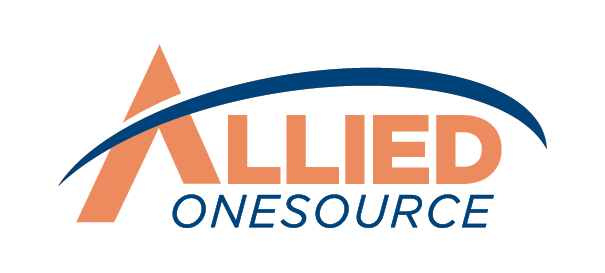Breaking into the Workforce: How to Avoid 8 Common Resume Mistakes for Your First Job
Landing your first job can be exciting yet overwhelming, especially when crafting the perfect resume feels like a puzzle. You might wonder, Is my lack of experience the problem? Or perhaps, Am I missing the right skills? But what if we told you that experience isn’t the issue—it’s how your resume presents you? Many first-time job seekers make simple yet critical mistakes that prevent them from standing out.
Whether it's focusing on irrelevant information, submitting a generic resume, or overlooking proofreading, these missteps could be holding you back from your dream opportunity. We’ll walk you through the most frequent resume mistakes and how to avoid them so you can put your best foot forward.
What are the Fundamentals of a Resume?
A resume highlights your qualifications, experiences, and skills to potential employers. For seasoned professionals, it highlights a track record of experience. But your resume can be even more critical for entry-level and first-time applicants.
It's often your first opportunity to show employers what you bring, from skills and education to personal qualities.
Essential elements of a resume include:
- Contact Information: Your name, phone number, email address, and any relevant professional social media profiles.
- Work Experience: Relevant roles, internships, volunteer work, or projects, even if limited.
- Education: Academic achievements, degrees, certifications, and relevant coursework.
- Skills: A combination of hard skills (technical abilities) and soft skills (interpersonal and transferable skills) that align with the job requirements.
Crafting a well-organized, clear, and tailored resume can set you apart and make a lasting impression, even without years of experience behind you.
Read More: 5 Tips for Writing a Great Resume
Common Resume Mistakes to Avoid
Are you guilty of these resume mistakes? Here are the most common resume mistakes to avoid that might be hurting your job search.
1. Focusing on Irrelevant Information
Hiring managers are looking for specific skills and qualifications, so including irrelevant details can hurt your chances. For instance, information like your home address, high school clubs, or hobbies unrelated to the job can distract from your qualifications.
Instead, focus on experiences that align with the role you’re applying for. For example, if the job calls for problem-solving skills, highlight a project where you demonstrated those abilities.
Related Reading: What to Include in Your Resume
2. Submitting a Generic Resume
A generic resume signals that you’re not invested in the role. Employers want candidates who are genuinely interested in their company and position. Customizing your resume for each application shows that you’ve put in the effort to understand the job requirements and that you're a good match for the role.
Start by looking over the job description. Identify key responsibilities and qualifications that the employer emphasizes. Highlight your relevant experiences, ensuring you emphasize (transferable) skills and accomplishments that directly match the job.
Using industry-specific language can also make a significant difference. When you incorporate terminology that resonates with the field, you present yourself as a candidate who is qualified and engaged with the industry. This approach increases your appeal to potential employers and boosts your chances of landing an interview.
3. Neglecting Keywords
Many
companies utilize Applicant Tracking Systems (ATS) to filter resumes and failing to include the right keywords or resorting to keyword stuffing often results in your application being overlooked.
To avoid this, analyze the job objective statement thoroughly. Identify important terms and phrases that the employer uses, as these are likely the keywords the ATS will be scanning for. Integrate these keywords naturally throughout your resume, ensuring they align with your skills and experiences.
This increases the likelihood of your resume passing through ATS filters and showcases your familiarity with the industry. Doing so enhances your visibility in the hiring process and increases your chances of being noticed by hiring managers.
4. Overlooking Formatting and Visual Appeal
Poor formatting leads to a cluttered and unprofessional appearance, making it difficult for hiring managers to read and understand your qualifications. A resume that is hard to read can quickly lose a hiring manager's attention, which is the last thing you want when trying to make a strong impression.
A well-formatted resume enhances readability and creates a positive first impression, ensuring that key information is easily accessible. To achieve this, use standard fonts like Arial or Times New Roman, which are easy on the eyes. Maintaining adequate spacing is crucial; it helps avoid a cramped look and allows the reader to navigate your resume effortlessly.
Additionally, employing bullet points can be effective, but they should be used sparingly to highlight only the most critical information. Finally, ensure that your layout is clean and organized, logically guiding the reader through your qualifications. Investing time in formatting makes your resume more attractive and reflects your professionalism and attention to detail.
5. Failing to Quantify Achievements and Highlight Transferable Skills
When accomplishments are vague, they lose their impact, making it harder for hiring managers to see your true value. Instead of simply stating what you did, show how well you did it.
For example, instead of saying you “handled customer inquiries,” specify that you “resolved 95 percent of customer issues on the first call, contributing to a 20 percent increase in customer satisfaction scores.” Numbers and metrics provide tangible evidence of your capabilities and help you stand out as results-oriented.
Reflect on your past roles and ask yourself: What specific outcomes did I achieve? How did my contributions improve customer experiences? This reflection will help you craft a compelling narrative that effectively showcases your skills.
6. Poor Proofreading and Lack of Feedback
Typos like spelling errors can give the impression that you didn’t care enough to review your work carefully. Whether you’re applying for an entry-level or specialized position, attention to detail is critical in every industry.
Additionally, using an unprofessional email address, such as "partylover123@gmail.com," or incorrect contact details can hurt your chances. Make sure your email is simple, and your contact info is correct. Why does this matter? Neglecting to proofread for grammatical errors or seeking feedback can reflect poorly on your work ethic, suggesting you might be careless or unprofessional in your approach.
Before hitting “send,” proofreading and seeking feedback ensure a polished, error-free resume that leaves a strong first impression. So don’t skip this crucial step!
7. Having an Overly Lengthy Resume
Remember, hiring managers often have limited time to review applications, so a concise resume can make a big difference.
Aim to keep your resume and cover letter to one page, particularly for entry-level call center positions. Focus on including only the information that directly relates to the job you’re applying for. Highlight key experiences and relevant skills, such as your proficiency in handling high call volumes or your ability to de-escalate customer complaints effectively.
If you find yourself struggling to condense your resume, ask yourself: What can I remove that doesn’t directly showcase my qualifications for this role? This exercise will help you create a focused and impactful resume.
8. Viewing your Resume as a Static Document
A resume should never be considered static or unchanging. This doesn't mean adding flashy graphics or interactive elements—it means continuously updating the content to reflect your most recent skills, experiences, and accomplishments.
Treating your resume as a dynamic document allows you to tailor it for each job application. Employers want to see how your qualifications align with their specific needs, so regularly revising your resume ensures it stays relevant and effective. It will also make applying for jobs a smoother process.
Looking for your next career opportunity?
Crafting a standout resume is crucial for making a strong first impression on potential employers. At Allied OneSource, we understand the challenges of effectively presenting your skills and experiences. And we provide personalized support to help you find the right fit.
Apply your newfound knowledge to create a standout resume. Also, share this article with peers who may also benefit from these insights. Together, let’s build a supportive community of applicants ready to seize exciting opportunities! Apply for your next role here!










